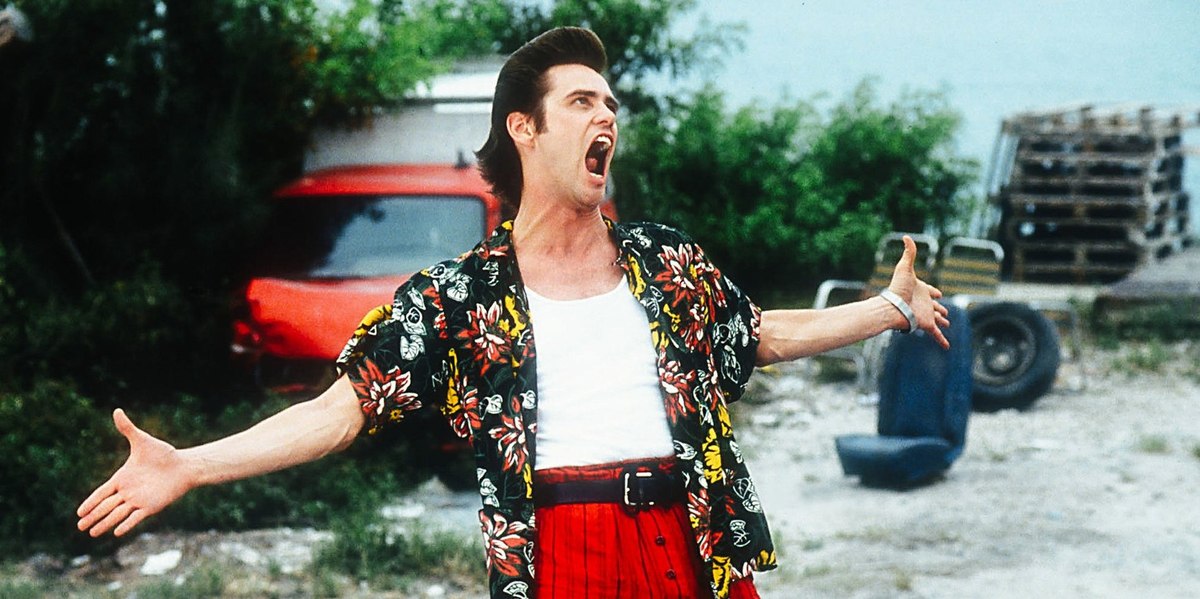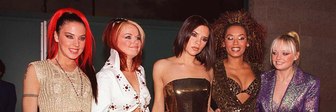American people are more likely than British people to put themselves at the top end of a weirdness scale – but weirdness is common among young people in both countries
At least since the 20th Century, each generation has complained about the strangeness of the last. Before kids glued to phones there were kids glued to video; before them punks; then rockers; then people who were into jazz. The offending lifestyles are almost always youth trends, but they've tended to come from both sides of the Atlantic in almost equal measures.
New YouGov research reveals that in 2015 American people are significantly more likely than British people to say they are weird.
When asked to place themselves on a weirdness scale, where 0 is not at all weird and 10 is completely weird, 42% of British people say they are not weird (0-3 on the scale), 38% say they are averagely weird (4-6) and 20% say they are quite weird (7-10). In America, the corresponding percentages are 34% not weird, 28% averagely weird and 34% quite weird – 14 points higher than in Britain.
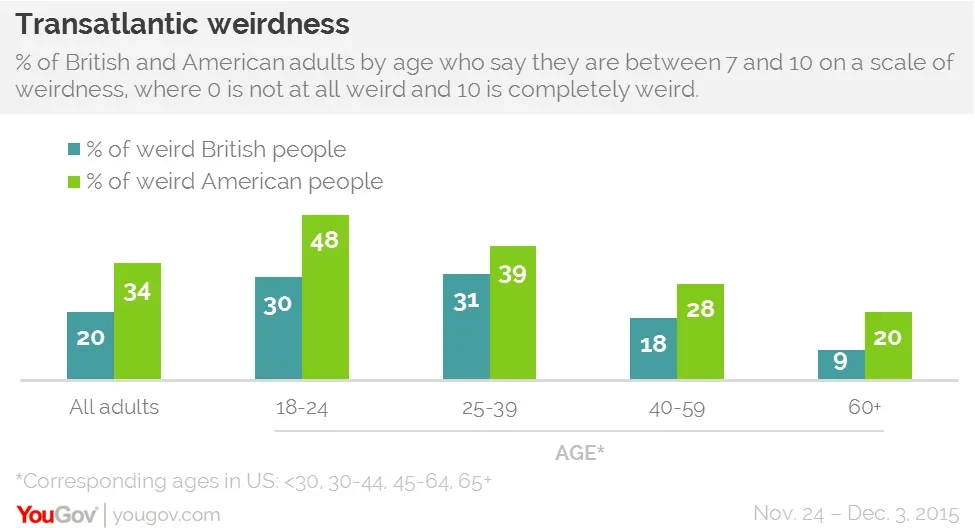
The difference between young people in America and Britain is even more stark. Fully 48% of the youngest generation say they are weird in the US, while in Britain only 30% do. There is a clear downward trend in self-identified weirdness with age, but even among over-65s in the US one in five say they are weird (more than twice as many as British over 60s).
Americans are also more likely to say that being weird is a good thing (a majority of 52% in the US compared to 42% in Britain) – although again this declines with age, as older people become less sure if being weird is a good or a bad thing.
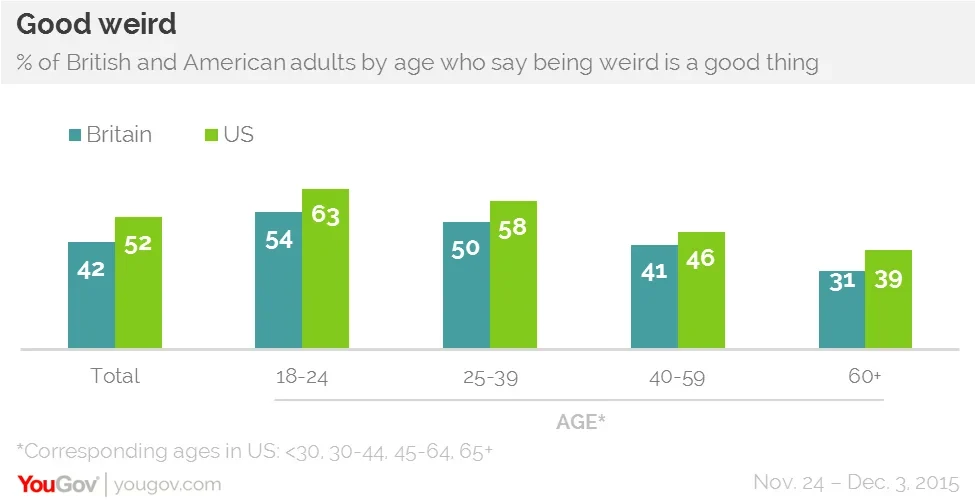
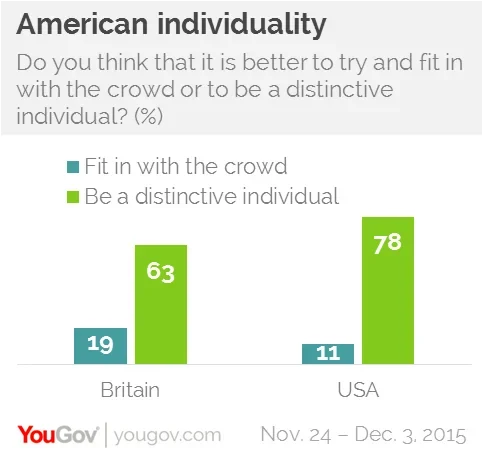
As is fitting for the founding home of individualism, Americans (78%) are more likely to say it is better to be a distinctive individual than British people (63%).
British people who say they are weird are particularly likely to think it is better to be a distinctive individual (77%, compared to 53% of those who are not weird), suggesting 'weirdness' has become more of a mark of originality than oddness.
And people who voted Conservative at the 2015 election are more likely (48%) than Labour voters (39%) to say they are not weird, perhaps illustrating the character of fabled 'middle England'.
